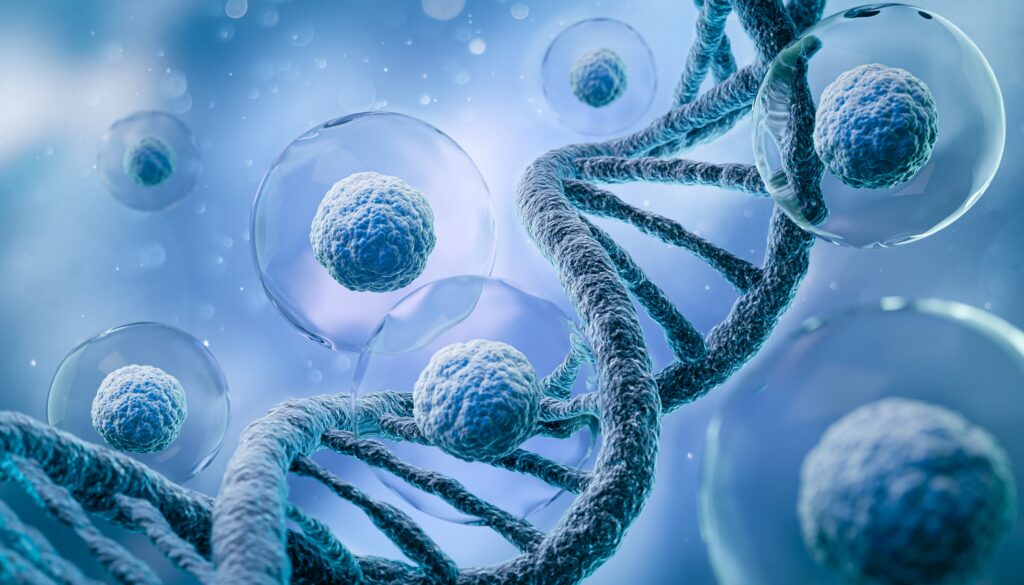Renowned biologist Professor David Liu from the Broad Institute of MIT and Harvard has been awarded the prestigious $3 million Breakthrough Prize in Life Sciences for his groundbreaking contributions to gene editing. Liu’s development of two innovative technologies—base editing and prime editing—has revolutionized the ability to correct genetic mutations that cause inherited diseases, offering unprecedented precision in genetic treatments.
Life-Saving Treatment for Teenager in the UK
Liu’s breakthrough tools have already made a significant impact in clinical settings. In 2022, base editing was applied in a pioneering clinical case at Great Ormond Street Hospital in London. The patient, 13-year-old Alyssa Tapley, had exhausted all treatment options after her leukemia failed to respond to conventional therapies. Using base editing, doctors modified donor T-cells to target and treat her cancer. Alyssa entered complete remission and remains in good health over two years later, demonstrating the life-saving potential of Liu’s work.
Precision DNA Editing: A Major Leap Forward
Base editing, one of Liu’s major innovations, allows scientists to make specific changes to a single DNA letter without disrupting the DNA’s double helix structure. This technology is a significant advancement over earlier CRISPR-based techniques, which typically disabled genes to treat genetic disorders. Prime editing, introduced shortly after, functions like a “search and replace” tool for DNA, enabling precise edits to longer gene sequences. Together, base and prime editing provide scientists with the tools to correct the vast majority of disease-causing genetic mutations.
Currently, these editing methods are being tested in over a dozen clinical trials targeting diseases such as leukemia, sickle-cell anemia, beta-thalassemia, and high cholesterol. Despite these advancements, Liu highlights an important scientific challenge: many successful treatments so far have involved editing cells outside the body. For several conditions, scientists still need to develop methods for editing DNA directly inside patients’ bodies.
From Backyard Experiments to Revolutionary Science
David Liu’s interest in science began at an early age in his California backyard, where he started experimenting with insects and progressed to more ambitious projects, such as building a 6-gram indoor plane and creating a LEGO-based cat detector to launch toy mice. His scientific journey continued at Harvard University, where he studied under Nobel laureate E.J. Corey and later taught a blackjack card-counting course after mastering the strategy himself.
Beyond his academic achievements, Liu is known for his generosity and commitment to supporting his students and colleagues. During the COVID-19 pandemic, he donated his entire post-tax salary to his lab team to help them afford bikes during lockdowns. Additionally, Liu runs a foundation that supports further scientific research and promotes the advancement of knowledge in his field.
Concerns for the Future of Science Funding
Despite his optimism about the potential of gene editing, Liu has expressed concern about the future of science funding, particularly in the United States. He points to recent cuts in research funding and layoffs in scientific institutions, warning that these actions could hinder long-term progress in the field.
“Slashing funding and cutting jobs in science in the United States is like burning your seed corn,” Liu says. “What could be more human than using all our knowledge and resources to make our children’s lives better and safer than our own?”
Liu’s Legacy: Transforming Medicine and Human Health
With the recognition of the Breakthrough Prize, Liu joins an elite group of scientists whose discoveries have the potential to transform human health and medicine for generations. His work in gene editing continues to inspire the scientific community and holds promise for treating a wide range of genetic disorders.
As Liu’s technologies move from the lab to clinical practice, the potential to cure or significantly improve the lives of millions of people worldwide grows ever closer. With his unwavering commitment to science and the well-being of future generations, Liu’s legacy is already being written into the history of medical innovation.
